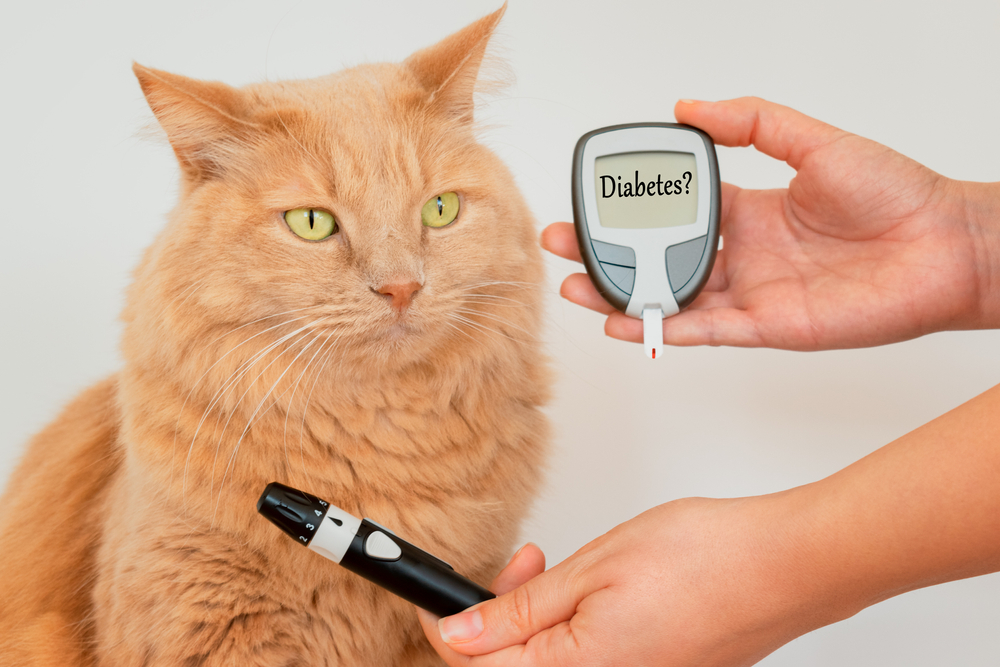November is Diabetes Awareness Month, and we want to share tips on caring for a diabetic pet. Pets with diabetes require a little extra care and attention. When you know what to do, though, you can keep them healthy (and happy) for many years to come.
Work Closely with Your Veterinarian
If you have a dog or cat with diabetes, it is especially important to work closely with your veterinary team. They will:
- Determine the amount of insulin your dog or cat needs
- Suggest food that will help your pet get the necessary nutrition
- Show you how to give your pet an insulin injection
Your vet can also serve as your partner when it comes to monitoring your pet to spot any indication that something might be off with your pet’s health. If you have any questions while caring for your diabetic pet, don’t hesitate to call your veterinarian. There are also wonderful online diabetes resources.
Focus on Diet for a Pet with Diabetes
Your vet will recommend food that is rich in quality protein, fiber, and complex carbohydrates. This can help to decrease the time it takes for your pet’s body to absorb glucose. While glucose is essential to power cells, a pet with diabetes often has trouble either delivering glucose to the cells or removing glucose from the blood. This is why you might have to intercede with insulin injections. Although diet is not a total fix, it can complement other treatment options. Obesity is a leading precursor of diabetes in many pets. The right diet can help your pet maintain a healthy weight.
Keep Your Diabetic Pet Moving
Exercise is another important element of a diabetic lifestyle. It can prevent major glucose spikes. Consistent, steady movements like walking and jogging are often the best for a dog with diabetes. Try to take your dog for a walk after eating to help him avoid glucose spikes.
Monitor Your Pet’s Progress
It might take a little trial and error to find the right treatment for your diabetic pet. Once you know the correct combination of medication, diet, and exercise, diabetes should be easily managed. Your veterinarian might set you up with a glucose monitoring system to keep an eye on your pet’s levels. There are certain ways to spot if the disease is getting worse. If you notice any of the following, you should schedule a veterinary appointment:
- Weight loss
- Increased appetite
- Excessive thirst
- Increased urination—this could be the body’s way of trying to remove excess sugar
- Decreased appetite
- No energy
- Vomiting
Pay close attention to your pet’s behavior. As soon as you notice a significant difference, get in to see your veterinarian. Even seemingly small changes can be signs of a major health change. As with any other condition, quick action gives you the best chance at a positive outcome.
Union Lake Veterinary Hospital believes proper veterinary care should combine ethics, compassion, and unconditional love. We try to show this to every pet (and their parent) who enters our hospital. Whether you are dealing with a pet with diabetes or just need an annual wellness check, we are here for you. To learn more, please call (248) 363–1508.

